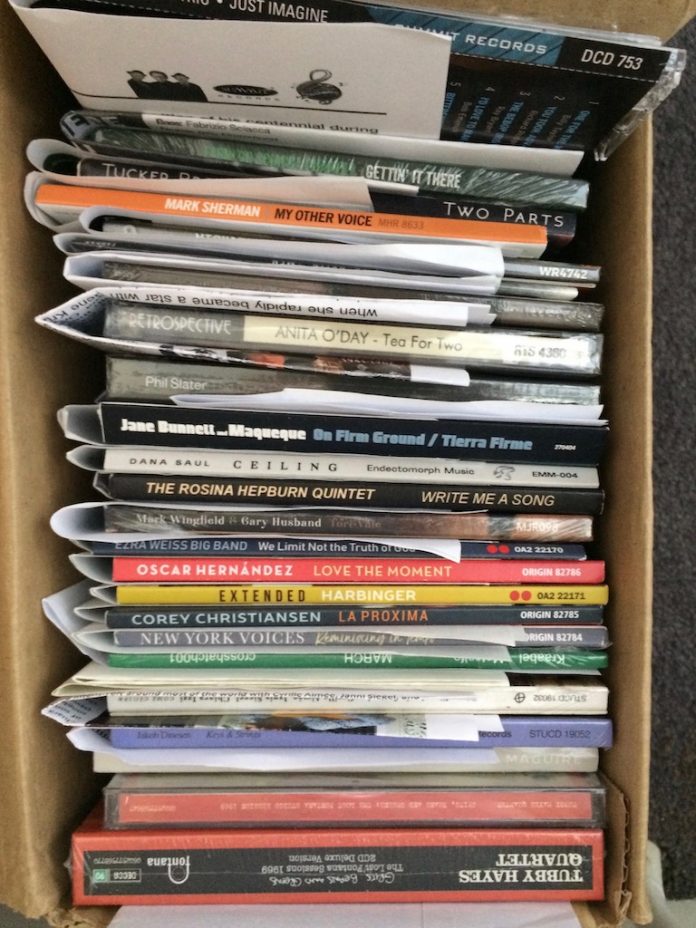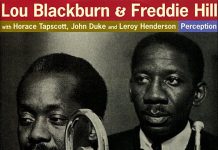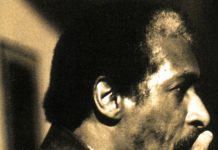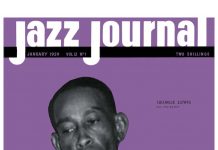Been a while. For which, apologies. Health. Family. “Stuff”. Plus a certain amount of what the Catholic Church calls “discernment”, which basically means looking around, and more scarily, looking within, to see what the next step ought to be. The health matter was very nearly settled for good by the collapse at my very elbow of a large pressful of CDs, akin in dramatic and symbolic effect to the Fall of the House of Usher, or the Twin Towers, or maybe the toppled bookcase that ended the life of composer Alkan (aka Charles-Valentin Morhange).
Clearing up was the odd part. So many discs that I simply didn’t remember, plus a few that have remained shamefully in their cellophane coating. We all know that of the making and unmaking of records there is no end, but this, surely, was ridiculous. A mere hundred years into the making of jazz records and we’re already experiencing geological shifts and catastrophes. I shouldn’t be surprised if there are coal measures somewhere further into the archive…
There’s a reason for all this “discernment” and these global concerns. There is, at the time of writing, a still remote but distinct possibility that the Penguin Guide to Jazz might be revived. In what form it might reappear, I can’t speak, but it raises the immediate and obvious question of how to accommodate that century’s worth of music-making into something that can be presented electronically, leave aside bindably for the moment. The day of stonking great reference books is probably over, though I still enjoy the priestly discipline of huffing down a volume of Grove’s or Slonimsky or the Bielefelder Katalog or the OED and muttering over a tiny-print entry.
There’s a kid I’ve been coaching who seems to thinking that playing ‘Steps’ (as he familiarly calls it) in every key from C to Q# minor, and doing so daily, is tantamount to holiness
So … the reason for the long silence has been much thought. More specifically about the impact of Indian and Hebrew music on our music (hence the Alkan reference, which wasn’t just name-dropping), a little research project that has been as intriguing as it is unlikely to be published. And then more generally an attempt to look at jazz (or at least its recorded legacy) whole and clear-eyed. Much was made this summer of the 50th anniversary of the moon landings, and much passing reference to the now-clichéd thought that what Apollo gave us was not space, or even the moon, but planet Earth, Gaia, our wet, blue rock and home. It was, I think, Apollo 8 that delivered the supposedly first image of earth from space. Supposedly because this year also marked the 60th anniversary of the real first image of earth from orbit, taken by Explorer 6, if I recall, in August 1959. The photograph itself is shit. If some still believe the moon landings were done on a sound stage, the Explorer photo could easily have been done with a box Brownie over a puddle, but there you go.
“If I recall” is pro forma, for that was the summer when I started to sit up and take notice. Of things like the space programme, which seemed the only career option for a Scots boy growing up amidst bomb-gappy houses, austerity and smog. It was the year – this I know – that I met and first heard my dad’s mate Alex Welsh, an encounter which I think somehow focused on Alex’s 30th birthday (was there a party?) but which quite possibly sowed a seed that has been growing ever since. If panspermia is a valid explanation for life on earth, then maybe we passed through the tail of something in 1959. It was the year of Kind Of Blue, which has been off the shelf more often than usual this year, not least with the long-delayed release of Miles’s shelved Rubberband sessions. And it was the year of the first Giant Steps sessions, which laid down a new liturgy for modern jazz. There’s a kid I’ve been coaching who seems to thinking that playing “Steps” (as he familiarly calls it) in every key from C to Q# minor, and doing so daily, is tantamount to holiness. Leaving me in the sorry position of rheumy, rummy old priest, recommending that he gets out a bit more and lets his hair down. “God will forgive, if you forget…”
1959 does now feel like an epoch in jazz history, in the sense that it represents one complete turn of the wheel. A multi-volume guide to its recorded history could quite logically cut off at the end of that summer, quietly noting the advent of Ornette Coleman and of Cecil Taylor’s Jazz Advance and Looking Ahead! but drawing the curtain just before Dolphy and Free Jazz. Publishers hate multi-volume books, though, and the challenge remains: how to accommodate the whole sweep of our music in something that you can pick up without the aid of an altar server.
One obvious answer is to omit anything so free as to have the blues and Broadway in another part of the galaxy. Or to ruthlessly stamp out any whiff of fusion, or certain types of singer. Or to exercise a brutal quality control, meaning that well-meaning platters of generic bebop have as much chance of admission as trainers and a “gentleman’s earring” at a golf club dance. The most obvious fix would be to submit every new release to the spirit-guide whose earthly alias was “R. D. Cook” (a name that should have been on a Surrey batting order and not on the cover of a jazz book). I get melancholy, and often roaringly drunk, each August as I contemplate his last days in 2007. They weren’t great, but the hardest thought of all was that nothing that came out after the 25th of that damp month reached Richard’s ear, to be accorded either a godlike nod or a sommelier’s discreet grimace. The only great thing about his final illness was his ability to talk about, and be ribbed about it, with humour and intelligence. I remember one phone call, when things were still looking sanguine, when Richard somewhat uncharacteristically laid into a British player’s new record, just released to some fanfare. I listened for a while and then said “Christ, I hope your oncologist broke the news more gently than that”. There was a momentary silence, which led me to fear that maybe I had gone too far, but then I realised he was chuckling: “Fair point”, he said. I have, I’m not ashamed to admit, asked him for guidance over the last few weeks. His name will, of course, be on the cover of any new edition of “the book”, as we called it, and his thoughts fully represented, but I need his view from space, even if it’s just an Explorer 6 snap rather than an Apollo 8 earthrise. How to get it all in…









